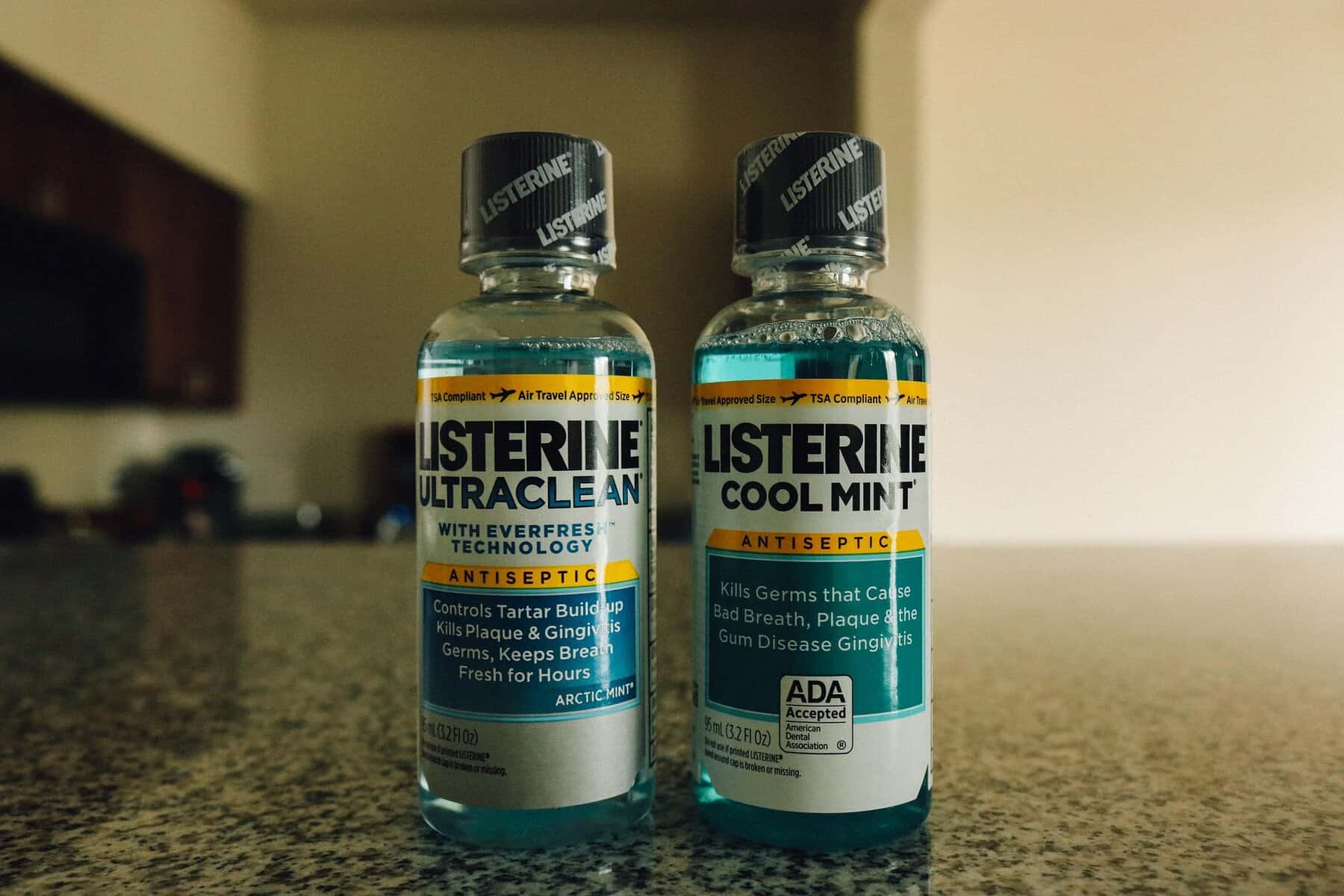Table of Contents Show
If you’ve ever used Listerine and felt like your mouth was on fire, you’re not alone. That sharp, burning sensation is a common complaint for many mouthwash users. While Listerine is famous for killing germs and freshening breath, the intense sting can be enough to make you dread your daily rinse. But why does it burn so much? More importantly, how can you keep your mouth healthy without the discomfort?
Why Does Listerine Burn?
The main culprit behind the burn is alcohol. Traditional formulas contain up to 14-27% alcohol.1 While it’s great for killing bacteria, alcohol can also irritate the soft tissues in your mouth, especially if they’re sensitive or already inflamed.
But alcohol isn’t the only factor. Essential oils like menthol, eucalyptol, thymol, and methyl salicylate2—key ingredients in Listerine—can also cause that burning sensation. These oils are meant to penetrate plaque and bacteria, but they can be harsh on sensitive gums and mouths.
Some Listerine products also contain chlorhexidine3, an antiseptic that can trigger allergic reactions or cause irritation in some people. And if you already have gum disease, gingivitis, or mouth ulcers, your mouth will naturally be more sensitive to any strong product, making the burn worse.
The Impact on Oral Health
For most people, the burning is temporary and harmless. But for those with gingivitis or sensitive gums, Listerine burn can make things worse. Inflamed gums are more reactive to alcohol and essential oils, which can lead to further irritation, dryness, and even tiny sores.
In some cases, using a harsh mouthwash for too long can cause canker sores4—small, painful ulcers inside the mouth. If you get frequent mouth sores or unusual irritation after using Listerine, it might be a sign your mouthwash isn’t the right fit for you.
How to Stop the Burn: Simple Solutions
Don’t have to choose between fresh breath and a comfortable mouth. Here are a few ways to get the benefits of mouthwash without the burn:
- Switch to an Alcohol-Free Mouthwash
Many brands, including Listerine itself, offer alcohol-free formulas5 that are gentler on the mouth but still kill bacteria. These versions use alternative antiseptics and soothing ingredients to freshen breath without the burn. - Look for Soothing Ingredients
Mouthwashes with aloe vera, chamomile, or coconut oil are designed to be gentle while promoting oral health. These ingredients can calm inflammation and reduce sensitivity. - Practice Good Oral Hygiene
Brushing twice a day, flossing daily, and regular dental check-ups can reduce your need for harsh mouthwashes.6 A clean mouth has fewer bacteria, so you won’t need the strongest formulas to stay fresh. - Rinse with Water Afterwards
If you like Listerine but hate the burn, try rinsing with plain water immediately after. This can wash away excess product and soothe irritated tissues. - Stay Hydrated
Dry mouth can make the burning worse. Drink plenty of water throughout the day and avoid sugary drinks to keep your mouth moist and reduce irritation.
When to See a Dentist
If switching products and habits doesn’t ease the discomfort, it’s time to see your dentist. They can check for underlying issues like gum disease, allergies, or oral infections that may be causing the sensitivity. Your dentist can also recommend mouthwashes tailored to your needs. Pediatric dentist Nik Sharma has some good recommendations for us.
Final Thoughts
Listerine burn is a common but solvable problem. By understanding what’s causing the sting and making a few simple changes, you can get a refreshing mouthwash experience without the discomfort. Whether it’s choosing an alcohol-free option, improving your daily oral care, or seeking professional advice, a comfortable and effective rinse is within reach.
References
- Alcohol vs. alcohol-free mouthwash: Which is right for you? (no date) LISTERINE®. Available at: https://www.listerine.com/bad-breath/alcohol-vs-alcohol-free-mouthwash (Accessed: 28 May 2025).
↩︎ - Listerine® Ingredients: 4 essential oils: Kenvue professional (no date) LISTERINE® Ingredients: 4 Essential Oils | Kenvue Professional. Available at: https://kenvuepro.com/en-us/clinical-resources/4-essential-oils (Accessed: 28 May 2025).
↩︎ - Benefits of Mouthwash: Listerine® UK (no date) Benefits of Mouthwash | LISTERINE® UK. Available at: https://www.listerine.co.uk/night-time/important-clean-mouthwash (Accessed: 28 May 2025).
↩︎ - (2025). [Online]. NCBI Bookshelf. Available at: https://www.ncbi.nlm.nih.gov/books/NBK546251/ (Accessed: 30 May 2025). ↩︎
- Listerine Zero Alcohol Mouthwash: Alcohol Free Mouthwashes [Online]. Listerine Middle East. Available at: https://www.listerine-me.com/mouthwash/zero-alcohol-mouthwash (Accessed: 30 May 2025). ↩︎
- (2021). Why Brushing, Flossing, and Mouthwash are Important for Oral Health [Online]. University General Dentists. Available at: https://utknoxvilledentists.com/why-brushing-flossing-and-mouthwash-are-important-for-oral-health/ (Accessed: 30 May 2025). ↩︎







